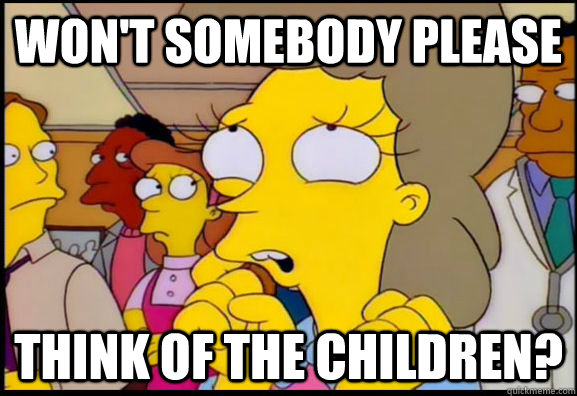[Spoilers ahead for Doctor Who and the Legend of Korra, but will try to minimise them.]
In the finale episode of the first season of the revived Doctor Who the doctor is faced with a dramatic moral dilemma. A vast unstoppable army of Daleks is attacking the earth, once they have conquered the earth they will spread out in an unstoppable horde and conquer the whole universe, resulting in untold death and destruction. The Doctor has a way to stop this with a magic technological gadget thingy, it will destroy all of the Daleks, but at the cost of killing everyone on the planet earth. So a standard trolley problem basically, should the doctor sacrifice the population of earth to save innumerable other worlds (including human colonies, in case you think there’s a moral distinction between sentient species).
The antagonist (the Dalek Emperor) dares him to do so saying he would therefore become like it, and show he’s not as moral as he thinks he is. He has to make the choice between “coward and killer.” The Doctor hesitates, and then says he would “be a coward any day.”
So the doctor refuses. Dies instantly. Humanity is exterminated, followed by the rest of the universe. But at least the doctor kept his hands clean.
| My glowing eyes will resolve this plot! |
Nah, not really. The Doctor’s companion saves him with a deus ex machina, destroys all the daleks, humanity and the rest of the universe are saved. Yay.
So the Doctor’s choice is made the right one retrospectively, because for reasons he couldn’t have predicted something else fixed the problem.
I don’t want to spoil any other episodes, but this basic pattern happens a lot (there’s a whole section in the relevant tvtropes page if you are interested). The Doctor is faced with a moral dilemma, stands by his principles in making the non-utilitarian choice, but then the bad consequences are averted by the magic deus ex machina/the writers. To be fair Doctor Who isn’t the only series that does this, but they are a particularly popular and prolific example so I have singled them out.
A variation of this that is particularly common is for the antagonist characters to have a serious point that the story shows to be legitimate. Its set up so the protagonist has to make a moral judgement, but then they do something unambiguously evil for no good reason, or are exposed as hypocrites, so its all fine and the protagonist can just beat them up and happily restore the status quo.
I’ll avoid spoilers, but the first season of the otherwise excellent Legend of Korra is bad for this. The main antagonist is shown to be an evil hypocrite, so the underlying moral issue (a thinly veiled allegory for real world oppression of the poor) is glossed over and resolved off screen without the protagonist having to make any difficult choices or come to terms with their own privileged position or the institutional problems that led to the problem. I can’t be alone in thinking that a version where both sides were consistent and well meaning, so a compromise had to be reached, would have been far more interesting.
This trope really annoys me and I’m going to try to articulate why
Firstly there’s the general reasons that deus ex machina plots are bad writing. Especially when you use them regularly, and the audience are robbed of any sense of suspense of consequences for the characters actions.
But they specifically annoy me when they are used to resolve moral dilemmas.
They allow the writers and characters to have their cake and eat it. You set up a big serious moral question, and score points with the audience and critics by doing so, but don’t have to pay the cost of having the character either take the family unfriendly option of sacrificing the few for the sake of the many, or have them suffer the consequences of their principles in the real world, where a lot of innocents die for no good reason.
 |
| Bentham's views on Doctor Who are sadly lost to history |
Putting my cards on the table, philosophically I’m a fairly hardcore utilitarian, so I think the obvious moral answer in these cases is to sacrifice the few for the greater good. But I accept that there are good criticisms of utilitarianism and serious arguments for other moral positions.
However these only work if you are willing to accept the negative consequences. If you believe that murder is always wrong, even when it results in less overall death and suffering, that's fine, but you have to bear the costs. [Kant was willing to bite the bullet and say lying to a murderer to save a life was immoral, which is remarkably consistent, if bizarre.]
However in these cases the non-utilitarian option is right because when you choose it you always get the best outcome due to circumstances outside your control. The message being that you should always stand by your principles, even when its a terrible idea, because there are no consequences.
This is harmful internal to the work of fiction because you lose any opportunities for meaningful character development and angst from them living with their choices and consequences.
But I also think it has a real world harm.
 For better or worse we absorb moral messages from our entertainment (indeed many people have argued this is the point of fiction), and this is especially true for children, who are the intended audiences for most of these shows. (I hate doing a “think of the children” argument but for once it’s true).
For better or worse we absorb moral messages from our entertainment (indeed many people have argued this is the point of fiction), and this is especially true for children, who are the intended audiences for most of these shows. (I hate doing a “think of the children” argument but for once it’s true).
The problem is that if we are absorbing our moral intuitions from shows where there are literally no consequences for standing by abstract principles and making moral choices this leads to terrible real life decision making. The real world isn’t fair, there are no magic plot devices that save the day or writers to reward you for making the “right” moral choice. If you choose not to sacrifice the few for the needs of the many, the many die.
A huge number of real world political and moral issues take this form. Governments have to make difficult tradeoffs about how they spend money and who they save. E.g. doing everything you can to save a single human life is a very moral principle in the abstract, but applied in reality it means spending huge amounts of money on rare cancer treatments for charismatic middle class white people, when that same money could have saved far more lives spent on boring things like more nurses and hygiene, and not even counting the costs of spending the money on the well being of people in our own country, or the society for the treatment of cute puppies, rather than donating it to treat malaria in the third world.
My hypothetical interlocutor might say: “Well that's true for the decisions of government’s, but most people aren’t governments, their moral choices just impact them and people they know personally. So they should just stick to principles in most cases and not do bad things even when they want to.” There’s a kernel of truth to this, most of the time killing is bad, and you can maybe make an epistemic argument that you need very good proof of good long term consequences before you do a bad thing for the greater good. But people do make real choices where this applies, they choose who to vote for, they choose what charities to donate to, they make tradeoffs between their personal desires, or the good of those close to them, and the greater good every day. When people have been taught all their lives that standing by your principles is always the right thing to do regardless of the consequences, because things will somehow always work out, they will consistently make bad choices.
I understand this seems mean of me. The idea that the good empathic people are rewarded and the cold calculators punished is very intuitively appealing. Our brains literally give us happy chemicals when we see people happy, and sad chemicals when we see people sad, and nothing when we give money to save the lives of far away people we've never met. but we should be trying to counter this tendency not indulging it, and pretending the world is just.
 |
| Screw moral complexity, I'm a giant glowing eye! |
I’m not saying every piece of fiction has to be a deep examination of ethics (I’d like that because I’m a massive philosophy nerd, but I know I’m in a minority there). There are extremely good works of fiction where the bad guys are unambiguously evil (e.g. in the Lord of the rings trilogy, Sauron is literally the personification of evil). But in those cases the central driving conflicts and plots come from different areas, Tolkein never pretends there is a ‘deep ethical question’ about whether we should let Sauron win, the plot is about how the protagonists beat him.
The problem is that writers try to have the benefits of moral complexity and drive a plot based on the dilemmas, but then cop out at the last minute. We get better fiction, and a better society when we are willing to live with the consequences of our moral choices.
This post was written in one go, then posted as part of my attempt at NaNoWriMo, where I’ve set myself a target of doing a certain number of words a day. So may not be as dazzlingly perfect as it would be if I spent longer on it. Its also in a more informal and conversational style than I normally use when I’m writing about debating or whatever. Thanks to everyone who commented on the drafts.
Comments on the content or style are very welcome. Feel free to be critical, I'm trying to get better at this whole writing thing.
Comments on the content or style are very welcome. Feel free to be critical, I'm trying to get better at this whole writing thing.
I think it depends on the writer, there are certainly other episodes of Doctor Who where the moral dilemma is seen through to its finish. The example that first comes to mind is "The Fires of Pompeii." "Father's Day" is from the same season as "The Parting of the Ways" and has a very similar moral dilemma that isn't solved with a cop-out.
ReplyDelete